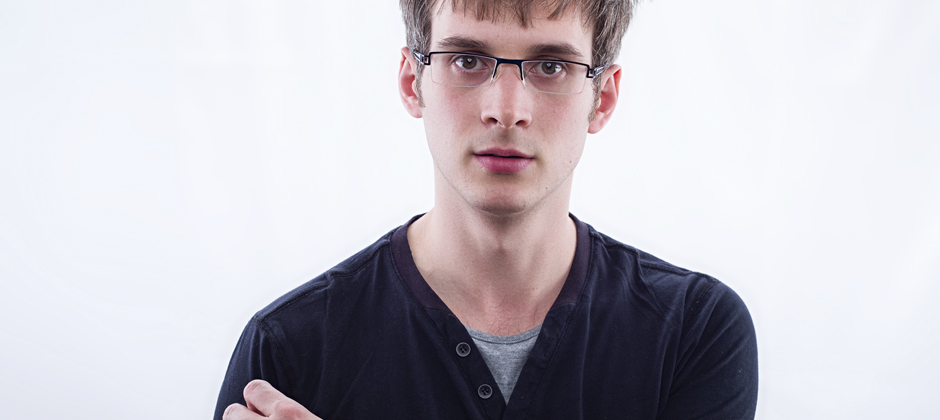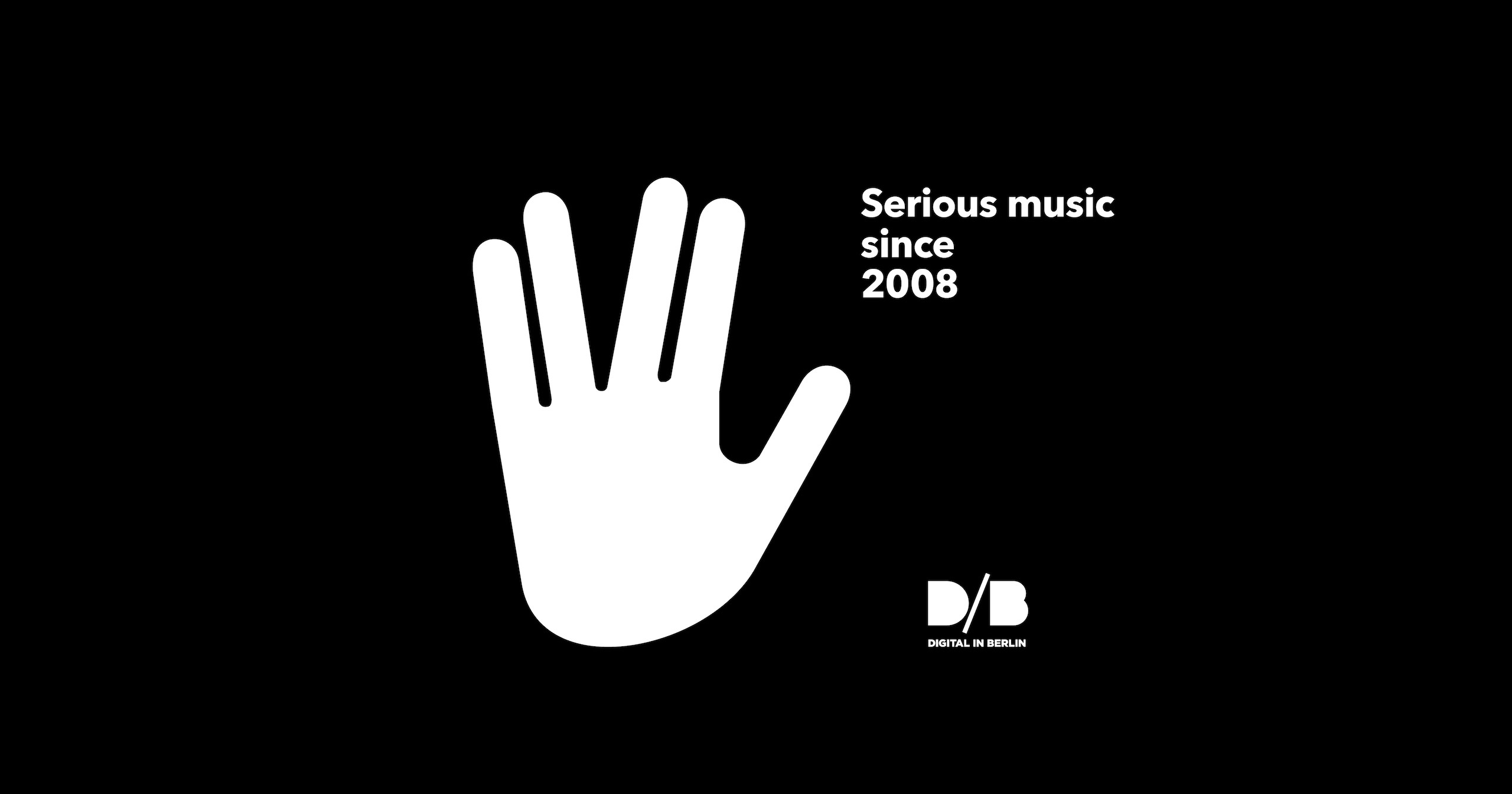Florian Bergmann (born in Berlin in 1984), is a saxophonist, clarinetist and composer. Both improvising and composing he developed a highly individual musical language which is about a sharp perception for the small nuances of the sound, about the richness of noises and dissonaces, about the subtle development of the form.
In 2012 he founded the contemporary chamber music ensemble “Trio Transmitter” which he sustains as a curator, composer and bass clarinetist. In 2015 the ensemble was supported by the Initiative Neue Musik. He is leader of the experimental jazz quartett „Cobalt Cluster“, which combines his compositions with collective improvisations. Since 2011 he works with sounds of everyday objects as part of his electro-acoustical research project „sonic essence“. Results have been so far the interdisciplinary composition “paysages façonnés”, the music for the dance performance “The Wood Project” and a couple of concert evennings with improvised music.
As a member of the alto sax quartet Fo[u]r Alto he elaborates extended techniques and microtonal playing for the saxophone. He is member of the international musicians’ collective and record label „Umlaut Records“ and host of the annual International Umlaut Festival Berlin. Furthermore he worked as a composer, director and musician/performer in numerous interdisciplinary pieces.
He studied at the HfM “Hanns Eisler “ and at the UdK Berlin and was prize winner of the Hanns-Eisler-Preis for contemporary interpretation 2011. Several cd-releases Umlaut Rec., Leo Rec., Unit Rec. and many others. His musical work brought him to all over Europe, to the USA, to Brasil and Singapure.
Facts
1: listen, listen, listen, listen (to yourself, to the others, to everything around you)
2: „Das Schöne ist nur durch den Maßstab der inneren Größe und Notwendigkeit zu messen. Das ist schön, was einer inneren seelischen Notwendigkeit entspringt. Das ist schön, was innerlich schön ist.“ (W. Kand insky)
3: I hope I’ll never forget that without the existence of money the world would be a better place.
Questions
What is the biggest inspiration for your music?
I think there are two main inspirations which are quite different (or maybe the same). The first is my attempt to bring some light into the confusion that I see around me and inside myself. To me music is the possibility to create a world in itself which makes sense and which I can relate to. It’s not so much about expressing something but more about creating something.
The second is the performance situation on stage. It doesn’t matter if I’m actually stand ing on a stage or if I’m imagining it while sitting on my desk composing a piece. The space and tension that you can create on stage, the connection to the audience and the attention to the details of perception – this situation fills me with energy and joy in a way I’ve never experienced anywhere else and which keeps me going.
How and when did you get into making music?
When I was four I saw a performance of Mozart’s Zauberflöte at the opera in Berlin and from that moment I knew I wanted to be a musician. At the age of seven my mother sent me to get classical piano lesson, some years later I picked up the saxophone and began to study jazz improvisation. I’ve always been very interested in many different types of music and especially in different instruments. As a teenager I literally tried to learn every instrument I could get a hold on including guitar, bass, drums, double bass, violin, clarinet, flute, trumpet and many others. After a while it became clear that if I wanted to play an instrument at a professional level I had to focus somehow. The saxophone had always been my favourite so I went with this and added later the clarinet and bass clarinet to my instruments that I really care about. From my first early encounter with Mozart’s Opera grew this need inside of me to bring together different art forms and to create a kind of contemporary music theatre.
What are your 5 favourite albums of all time?
Lee Konitz – Motion
Helmut Lachenmann – Chamber Music (including Allegro sostenuto, Dal Niente and Pression)
The Beatles – Sgt. Pepper’s Lonely Hearts Club Band
Wolfgang Amadeus Mozart – Requiem (no specific recording, just the music itself)
Steve Coleman – Motherland Puls
What do you associate with Berlin?
I was born in Berlin thirty-one years ago and since then I’ve always lived here. I went to school in Schöneberg and Wilmersdorf, to the University in Mitte and Charlottenburg, lived in Prenzlauer Berg, Friedrichshain and Neukölln. I married my wife in Britz and my son was born in Tempelhof. So I guess there’s more then one association for me to this place. I know that many people come here for a specific reason, for the interesting art scene, the low prices or many parties you can go to – for me there just has never been a real reason to go away, I was already in the perfect place. I’ve travelled a lot but Berlin has always been something like a subconscious background to my whole life.
What’s your favorite place in your town?
One of my favourite places is a small street close to my apartment in Neukölln, it’s called Kirchgasse. The area where I live is generally quite busy and noisy, many different cultures and traditions facing each other. In the middle of all this there is a small, hidden street that looks as if nothing had changed during the past 200 years. No cars, no noises, just small houses with even smaller gardens next to them. I like to go there to think about a project or to take a walk with my child.
If there was no music in the world, what would you do instead?
I would be a molecular biologist. I’ve always been fascinated by this science which explores the foundation of our existence using experimental knowledge and mathematical logic at the same time. Looking at the schematics of a protein is just beautiful and there’re so many philosophical implications to this work. Interestingly, my brother is working in the exact field (see below).
What was the last record you bought?
Mysteries of the Macabre by György Ligeti
Who would you most like to collaborate with?
Volker Schlöndorff – he’s a great director and an impressive personality. I never met him in person and I’m not sure in which way we could collaborate, but if I had the chance to do so I would take it.
What was your best gig (as performer or spectator)?
The last gig that we played with Trio Transmitter in Berlin was very satisfying for me. I felt we had managed to present a program of challenging contemporary music to the audience in a way that they could enjoy and appreciate the complexity and the simple beauty of the music at the same time. I wouldn’t know what more I could aim for.
How important is technology to your creative process?
Technology (mainly the computer) is quite important as a tool for my working process. When I compose I constantly switch between writing by hand and writing on the computer depending on what I need for doing the next step. I also use the computer and some recording equipment to work with self-recorded sound samples which I use for improvisations or include into compositions. I like a lot spending hours figuring out the best technical solution for an artistic project but technology is never the starting point or inspiration for my creative process nor is it my goal to present technology as a value per se on stage. First and last come always the musicians/performers with their instruments and ways of expressions.
Do you have siblings and how do they feel about your career?
I have a brother who is two years younger than me and a scientist (see above). I think for him it’s somehow „ok“ that I’m a musician, he plays some guitar himself which gives him a certain understand ing for what I do. But this understand ing ends at a quite technical level of practicing and maybe teaching. The reason why I keep exploring all the possibilities of my instruments and why I try to constantly widen my concept of form, structure and music or performance in general isn’t quite clear to him. In my opinion that’s strange because artistic and scientific research doesn’t seem so different for me – but then the goal and (more importantly) the first impulse is different so you probably can only determine that either you feel the importance and meaning of art or you don’t.
Why I should risk a steady income and the expectation of a good pension for this might be hard to understand for him. I don’t blame him.
Our Favourites:
Sonic essence – Paysages façonnés
Lebst du shon
Treffpunkt
Links: florian-bergmann.com | Facebook

